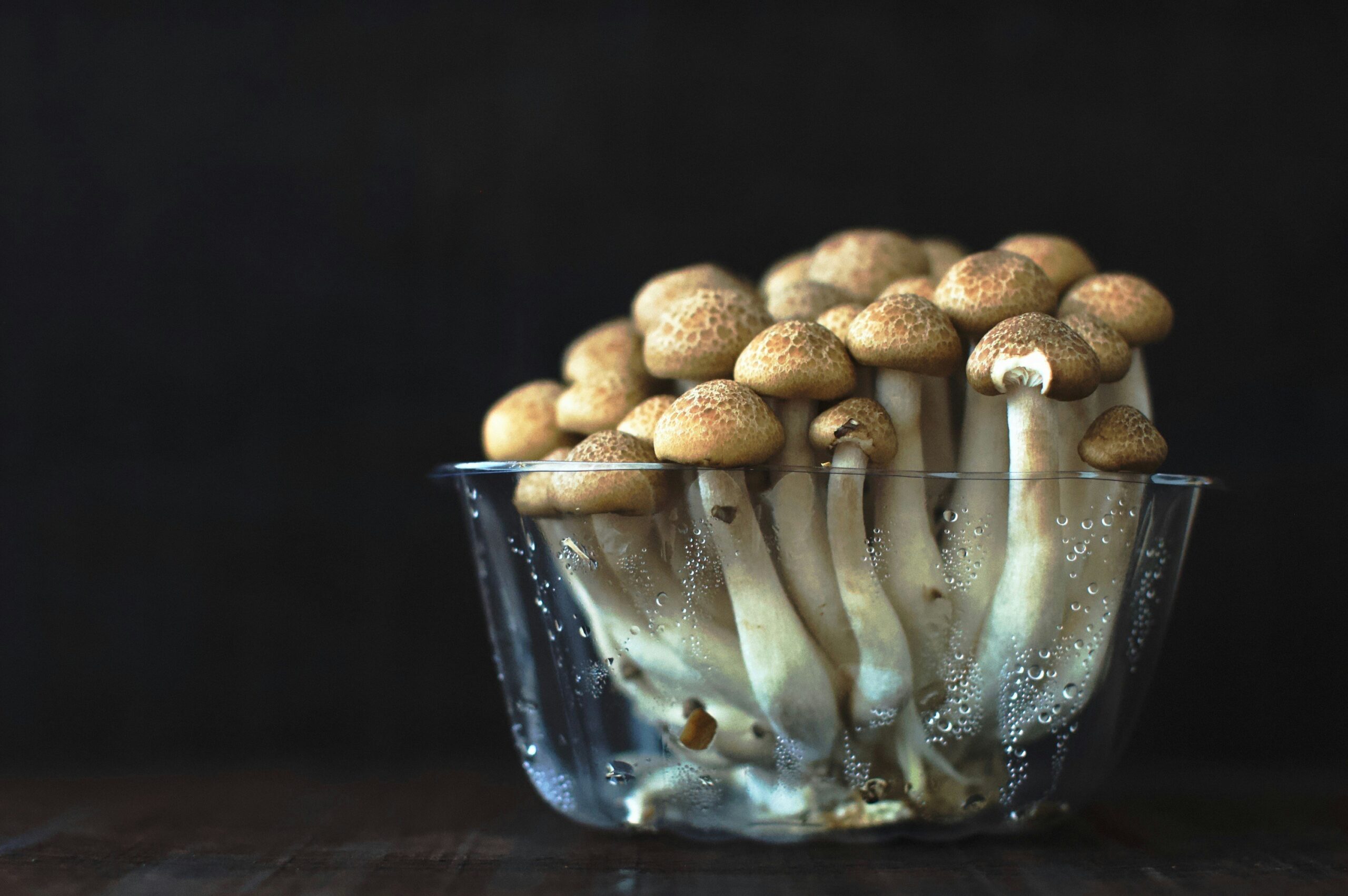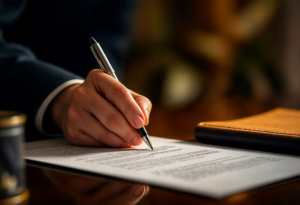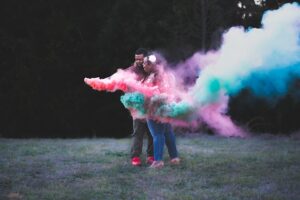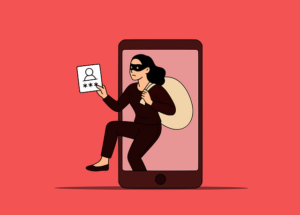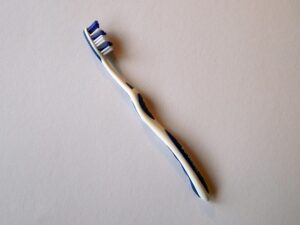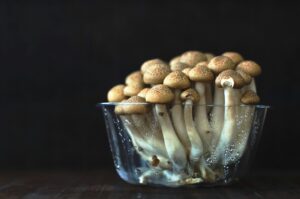
Psilocybin has increasingly gained attention due to its potential therapeutic use, although there are still no FDA-approved medical uses for it yet in the U.S. As interest in psilocybin grows, so will the number of people that experiment with it recreationally. Consequently, some employers will continue to test their employees for it in order to discourage use. With the spike in users moving up steadily, drug testing for psilocybin may be on the horizon for many employees.
What Is Psilocybin?
Psilocybin is a naturally occurring psychedelic compound found in over 200 species of mushrooms, commonly known as “magic mushrooms” or “shrooms”. In the U.S., psilocybin is a Schedule I controlled substance under federal law. Outside of the U.S., the legal status ranges from strictly prohibited to decriminalized for personal use.
What Are The Effects Of Psilocybin?
Psilocybin is actually not psychoactive in itself. But when the body ingests and metabolizes it, the result is a psychoactive byproduct called psilocin. Psilocybin primarily acts on serotonin receptors in the brain and is known to cause visual/auditory hallucinations, altered sense of time, euphoria, self reflection and mystical experiences. Effects usually begin within 20-40 minutes of ingestion and last 4-6 hours.
When is Psilocybin Testing Required?
Psilocybin testing is not typically performed with standard drug panels. However, there are a few situations where psilocybin testing may be performed on an “extended panel” that looks for one or more less commonly tested substances. Here are some situations where one of these extended panels may be performed:
Workplace Requirements: Probably the most likely reason for psilocybin testing, it may be tested for when applying for a job or as part of a random test after hire. This is only done for non-DOT testing, not DOT testing.
Research: Psilocybin is being studied heavily in the medical community for its proposed therapeutic benefits. Study participants may be tested regularly in order to monitor their compliance with clinical guidelines. This is important because researchers don’t want psilocybin to be consumed outside of their controlled environment since it could result in data that is invalid or skewed.
Medical Emergency: During emergencies when someone is showing symptoms of mushroom intoxication, psilocybin testing can help differentiate between psilocybin ingestion and other toxic mushroom species like those in the Amanita family for example.
Other situations that may require an extended panel are law enforcement investigations, substance abuse treatment programs and child custody cases.
It’s important to reiterate that the inclusion of psilocybin in a drug test panel is relatively uncommon. If psilocybin is being added to the panel, it may be due to some sort of “probable cause” or suspicion that an individual has been using it.
Does DOT Drug Testing Look for Psilocybin?
The Department of Transportation (DOT) drug testing program, which covers safety-sensitive employees in transportation industries, does not currently include psilocybin in its standard drug testing panel.
Instead, the DOT mandates testing for five specific drug categories which include: marijuana metabolites, cocaine metabolites, amphetamines (includes methamphetamine and MDMA), opioids (includes codeine, morphine, heroin, hydrocodone, hydromorphone, oxycodone, and oxymorphone) and phencyclidine (PCP).
Why doesn’t the DOT test for psilocybin? There could be a few reasons for this. For one, they may be using data that shows a lower prevalence of psilocybin use compared to other drugs, implying a lower risk for employee abuse.
Another reason could be due to the extra cost involved with adding another drug to the standard panel. Since it is considered a specialty test and it has relatively low volume, it costs more for labs to run it since they aren’t buying the supplies in bulk. Consequently, the labs pass the extra cost on to customers. To put in perspective, a psilocybin (psilocin) screen/confirmation test for urine currently runs around $189-$225 per test. This extra cost may not be something DOT is willing to take on right now, at least at this price.
Does Non-DOT Drug Testing Look for Psilocybin?
Non-DOT drug testing is the type of testing that is done for jobs that don’t fall under DOT, but the employer still wants to maintain a drug-free workplace. Non-DOT testing typically uses a 5 or 10 drug panel to screen for common drugs of abuse. However, unlike DOT testing, non-DOT testing has the option to add additional drugs like psilocybin if they so choose.
Industries with high safety requirements may be more likely to include psilocybin on an extended drug panel. Healthcare, aviation, and certain government positions are fields that may see the extra precaution as necessary to ensure that staff are always operating at peak mental capacity.
Regional prevalence is another factor which can trigger a need for psilocybin testing. If a company is located in an area where psilocybin is more common or has been legalized/decriminalized, leadership may decide to add psilocybin to their drug testing panel due to the increased risk for employee use.
What Type Of Specimens Are Used for Psilocybin Testing?
Psilocin, which is a metabolite of psilocybin can be detected in various biological specimens. The type of specimen chosen depends on testing factors like purpose, desired detection window, and method availability.
Urine is the most commonly used specimen for psilocybin (psilocin) testing. Blood, hair and oral fluid (saliva) can also be tested, although they are rarely used.
What are the Test Cutoff Levels for Psilocybin?
A common question is how much psilocybin does it take to cause a positive test result? Unlike more commonly tested drugs, there are no universally established cutoff levels for psilocybin. Cutoff levels can vary depending on the testing method, the laboratory performing the analysis, and the purpose of the test. Having said this, the most common cutoff levels that I was able to find was with urine dipstick tests at a cutoff of 500 ng/ml. In addition, one lab was found that tests as low as 1 ng/ml using LC/MS (Liquid Chromatography/Mass Spectrometry).
Initial screening identifies specimens that exceed the designated cutoff level. Next, confirmation testing is performed on all positive specimens to ensure the initial screening result is in agreement. Specimens which tested as negative on the initial screen will not need to undergo confirmation testing.
It’s important to note that these ranges are approximate and can vary between methods. Laboratories may set their own cutoff levels based on validation studies and the requirements of their clients. As psilocybin testing becomes more common, cutoffs may become more standardized in the future.
How Long Does Psilocybin Stay In Your System?
The detection window for psilocybin (psilocin) can vary based on several factors. One of the biggest factors is the type of specimen that is used for testing.
Urine: detection window is 1-3 days after last use. Heavy users may test positive for up to a week.
Blood: Detection window is only a few hours to a day. Primarily used in clinical or forensic settings for acute intoxication.
Hair: Has the longest detection window (up to 90 days or longer). Hair samples are rarely used due to the complexity and cost involved with analysis.
Oral Fluid: Detection window is similar to blood, typically a few hours to a day.
What Factors Can Affect The Detection Window?
Besides the type of specimen being used, there are additional factors which can also have an effect on detection time:
Dosage: Higher doses and more frequent use may lead to longer detection times since the psilocin has more of a chance to accumulate in the body.
Metabolism: Variations in metabolism can affect how quickly the body processes psilocin. In healthy people with efficient organ systems, it can be cleared from the blood a lot quicker. Whereas unhealthy people with malfunctioning organs may take longer to process and remove from the body. Body mass, kidney health, liver health, age and hydration status can all affect the efficiency of metabolizing psilocin in the body.
It’s important to note that these are general guidelines, and individual cases may vary. Either way, the detection window for psilocybin is rather short for urine, blood and oral fluid, making it hard to detect use beyond a few days after use. If there is a compelling reason that somebody is suspected of using psilocybin, but their urine, blood or oral fluid test has come up negative, hair testing needs to be considered as a next option due to its increased sensitivity.
How Long Do Test Results For Psilocybin Take?
If specimens are sent to a laboratory and the results are negative, they should be available within 24-48 hours. If the results are positive, it may take up to 3-5 additional business days due to additional time required for confirmation testing and MRO review to take place.
There are also rapid tests that use urine dipsticks to get same day results, usually in 5 to 15 minutes. These kits are often done in the home for a person’s own self knowledge and not as an official test for an employer. If one of these rapid test kits come up positive, the specimen would need to be sent to a certified laboratory for confirmation testing, adding another 3-5 days to the process.
Additional Factors Affecting Turnaround Time:
Laboratory Workload: Busier labs may have longer turnaround times due to high volume.
Test Method: More specialized tests that use hair samples may take longer to process due to the complexity and additional steps in the process.
Urgency: Some situations (e.g., medical emergencies) may warrant expedited testing.
Is Medicinal Use an Exemption?
Psilocybin has had a surge in research into therapeutic applications like treatment-resistant depression, anxiety in the terminally ill, substance use disorders and post-traumatic stress disorder (PTSD).
This raises the question of whether medicinal use of psilocybin can be used as a legitimate exemption from psilocybin drug testing. At this time, the answer is no, since there are currently no standard exemptions for medicinal psilocybin use for the purposes of drug testing.
Eventually, if psilocybin gains FDA approval for medical use, it may follow a similar path to medical marijuana in terms of workplace and testing policies. Employers and testing programs would need to develop protocols for verifying and accommodating medical psilocybin use.
Medical use of psilocybin is constantly changing. As for now, individuals involved in clinical trials, or those considering one, should consult with legal and medical experts regarding possible implications for drug testing in their state.
The Future Of Psilocybin
If the medical use case gets stronger, it will pave the way for potential FDA approvals along the way. This will give states the legitimacy they need to legalize psilocybin for those with the clinical necessity and help employers and testing companies to finally build a standardized medical exemption. This will help those seeking treatment with psilocybin to not be penalized if they test positive for the substance.
Psilocybin has a lot of potential in becoming a natural alternative medicine. But despite it’s legitimate clinical uses, it is still sold on the black market and used recreationally. Because of this, the risk remains that employees may use psilocybin illicitly . This is why psilocybin testing will remain as an available tool to assist employers who want to keep their staff drug-free.

